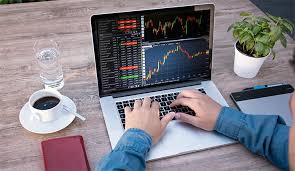
Welcome to the exciting world of Forex trading! Whether you’re a beginner looking to enter the market or an experienced trader seeking new strategies, understanding the nuances of Forex trading is essential. Forex, or foreign exchange, is the largest financial market in the world, with a daily turnover exceeding $6 trillion. With a deep understanding of trading concepts, coupled with disciplined practices, you can navigate this market successfully. If you’re ready to delve deeper into Forex, don’t forget to check out trading in forex trader-maroc.com for valuable tools and resources.
Understanding Forex Market Basics
The currency exchange market operates around the clock, five days a week, and is traded globally. This involves buying one currency and selling another simultaneously. Forex trading pairs are usually categorized into three types: major pairs, minor pairs, and exotic pairs. Major pairs involve the most traded currencies, such as the USD, EUR, and GBP.
Major Currency Pairs
The most traded pairs in the Forex market are the majors, which typically have high liquidity and lower spreads. Examples include:
- EUR/USD – Euro vs. US Dollar
- USD/JPY – US Dollar vs. Japanese Yen
- GBP/USD – British Pound vs. US Dollar
Minor and Exotic Pairs
Minor pairs do not involve the USD but include currencies like AUD, NZD, and CAD. Exotic pairs, on the other hand, involve a major currency paired with a currency from an emerging economy, such as USD/TRY (US Dollar vs. Turkish Lira).
Getting Started with Forex Trading
To start trading, you’ll need a reliable trading platform. There are many brokers in the market, and it is essential to choose a regulated one. A good broker will provide you with advanced trading tools, educational resources, and customer support.
Creating a Trading Account
Once you choose a broker, you will need to register and verify your account. Most platforms offer demo accounts that allow you to practice trading without risking real money. This is an excellent way to familiarize yourself with the platform and trading strategies.
Learning Key Concepts
Understanding key concepts is paramount. Here are some essential terms you need to familiarize yourself with:
- Leverage: This allows you to control a larger position with a smaller amount of capital.
- Margin: The amount of money required to open a leveraged position.
- Spread: The difference between the buying and selling price of a currency pair.
- Pip: The smallest price move that a given exchange rate can make based on market convention.
Formulating a Trading Strategy
Successful trading largely depends on a well-defined trading strategy. Here are some of the most popular strategies used by traders:
Day Trading

Day trading involves entering and exiting trades within the same day. Traders utilize short-term strategies and may make multiple trades in a day. This strategy requires a deep understanding of price movements and often relies on technical analysis.
Swing Trading
Swing traders hold positions for several days or weeks to capture price movements. This strategy is suitable for those who cannot devote time to day trading while allowing traders to take advantage of the market’s volatility.
Scalping
Scalping is one of the quickest trading strategies, involving executing a large number of trades to capture small price movements. This requires a highly disciplined approach and quick decision-making skills.
Fundamental Analysis in Forex
Fundamental analysis involves evaluating economic, financial, and other qualitative and quantitative factors that might affect currency prices. Traders look at factors like interest rates, employment numbers, and GDP reports. Understanding these indicators can significantly impact your trading decisions.
Technical Analysis
Technical analysis involves analyzing price charts and using indicators to forecast future price movements. Some of the most widely used indicators are:
- Moving Averages: These help smooth out price data to identify trends.
- Relative Strength Index (RSI): An indicator measuring the speed and change of price movements.
- Bollinger Bands: These indicate market volatility and potential overbought or oversold conditions.
Risk Management in Forex Trading
Risk management is crucial for long-term success in Forex trading. Here are some essential tips to manage your risks:
- Use Stop-Loss Orders: This helps limit potential losses by automatically closing trades when they reach a certain loss threshold.
- Define Risk-Reward Ratios: Determine how much you’re willing to risk in relation to the potential reward for each trade.
- Never Risk More Than You Can Afford to Lose: Only trade with money you can afford to lose to reduce emotional trading.
Developing a Trading Psychology
Having the right mindset is key to trading success. Emotions like fear and greed can lead to poor decision-making. Here are strategies to help develop a healthy trading psychology:
- Keep a Trading Journal: Document your trades, thoughts, and feelings to recognize patterns and improve your strategies.
- Stay Disciplined: Stick to your trading plan and don’t let emotions dictate your actions.
- Continuous Learning: The Forex market is constantly evolving. Stay updated on market news and trends.
Conclusion
Trading in the Forex market can be rewarding but also comes with its risks. By understanding the fundamentals, technical analysis, and employing sound risk management strategies, you will be better prepared to navigate the complexities of this financial marketplace. Remember to practice diligently and continuously educate yourself to improve your trading skills. Whether you are day trading, swing trading, or using scalping strategies, staying informed and disciplined will pave the way for your success.
As you embark on your Forex trading journey, leverage the resources available to you, such as trader-maroc.com, to enhance your skills and knowledge. Good luck, and may your trades be profitable!
